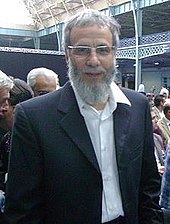Yusuf al-Bahrani, an eminent figure in Shia Islamic scholarship, holds a pivotal place within the theological and historical landscape of Shia thought. His contributions extend across various domains, including jurisprudence, philosophy, and eschatology, rendering him a multifaceted scholar. This exploration seeks to elucidate al-Bahrani's impact on Shia teachings while addressing the intrigue surrounding his legacy.
Yusuf al-Bahrani, born in the 18th century in Bahrain, is primarily known for his role as a jurist and a theologian. His expertise in the principles of Islamic jurisprudence (fiqh) situates him as a foundational figure in the development of Shia legal frameworks. Distinctively, al-Bahrani's interpretations emphasize the applications of the Quran and Hadith, positioning them within the context of contemporary society's needs. He is notable for his analytical methodologies, uniquely weaving together classical scholarly traditions with the exigencies of his time.
One of the core tenets of al-Bahrani’s teachings is his interpretation of the concept of wilayah, or guardianship. This principle, central to Shia beliefs, pertains to the authority granted to the Imams. Al-Bahrani's works elaborate on the nature of this authority, asserting that the Imams possess an inherent spiritual and temporal leadership over the ummah, or Muslim community. By emphasizing the depth and breadth of this concept, he invites a profound contemplation on the role of Imams as not merely figures of reverence but as active agents of guidance in the pursuit of justice and moral rectitude.
His seminal work, "Al-Hada'iq al-Nadirah," serves as a comprehensive treatise, affirming the significance of Shia jurisprudential discourse. Within its pages, al-Bahrani engages in meticulous analysis of legal rulings, often drawing upon the lives and teachings of the Imams. His synthesis of scholarly commentary alongside practical applications reflects a nuanced understanding of faith as an evolving entity, responsive to the needs of believers across generations. By providing clarity on complex legal matters, he contributes to the accessibility of Shia law for the layperson, strengthening communal adherence to these sacred principles.
Another notable aspect of al-Bahrani's scholarship is his approach to theological discourse. He engages with a variety of philosophical paradigms, addressing existential inquiries that permeate the human experience. His reflections cover a vast spectrum, from the nature of God to the intricacies of the human soul. This philosophical inquiry is conspicuously marked by an understanding of human suffering and the quest for enlightenment. Al-Bahrani's teachings prompt readers to ponder not only the existence of a higher power but also the moral imperatives that arise from such beliefs, guiding adherents toward a life imbued with purpose and ethical responsibility.
The fascination with Yusuf al-Bahrani, therefore, is not merely a scholarly interest but a testament to his ability to connect profound existential themes with practical theological governance. His works resonate on multiple levels, appealing to academics, practitioners, and seekers alike. The depth of his analysis invites readers to delve beyond surface interpretations, compelling them to engage with the complexities of faith in a modern context.
The educational frameworks established by al-Bahrani also warrant consideration. By fostering a culture of inquiry and critical thought, he laid the groundwork for future generations of scholars. His emphasis on ijtihad, the process of independent reasoning in legal matters, positions the individual as an active participant in the interpretation of divine will. This notion challenges the static understanding of religious authority, suggesting that the vibrancy of belief necessitates active engagement and responsiveness to evolving societal dynamics.
In terms of the socio-political implications of al-Bahrani's thought, one cannot overlook the historical context in which he operated. Living during a period marked by colonial encroachments and sectarian strife, his scholarship provided not only spiritual solace but also a framework for communal resilience. By nurturing a sense of collective identity rooted in Shia teachings, al-Bahrani empowered his community to navigate the complexities of a rapidly changing world. The synthesis of theology and socio-political activism elucidates the relevance of his teachings in contemporary discourse.
Moreover, the aesthetic dimensions of al-Bahrani's works invite contemplation of the relationship between faith and art. His writings often invoke poetic imagery, drawing parallels between the divine and the beauty inherent in creation. This artistic sensibility underscores the belief that the appreciation of beauty can serve as a pathway to spiritual enlightenment, enriching the believer’s journey toward understanding. Through this lens, al-Bahrani’s legacy emerges as not only a textual heritage but also an invitation to experience the world in a manner that reveres the divine.
In conclusion, Yusuf al-Bahrani stands as a luminary within the pantheon of Shia scholarship, whose teachings resonate across disciplines. His multifaceted approach, integrating jurisprudence, philosophy, and sociopolitical insights, offers a rich tapestry of thought that continues to inspire. The ongoing fascination with his legacy is a testament not only to his scholarly acumen but also to the enduring relevance of Shia teachings in navigating the complexities of contemporary life. Engaging with al-Bahrani’s works provides an avenue for individuals to explore the depths of their faith, propelling them toward a more profound comprehension of their spiritual and moral existence.


